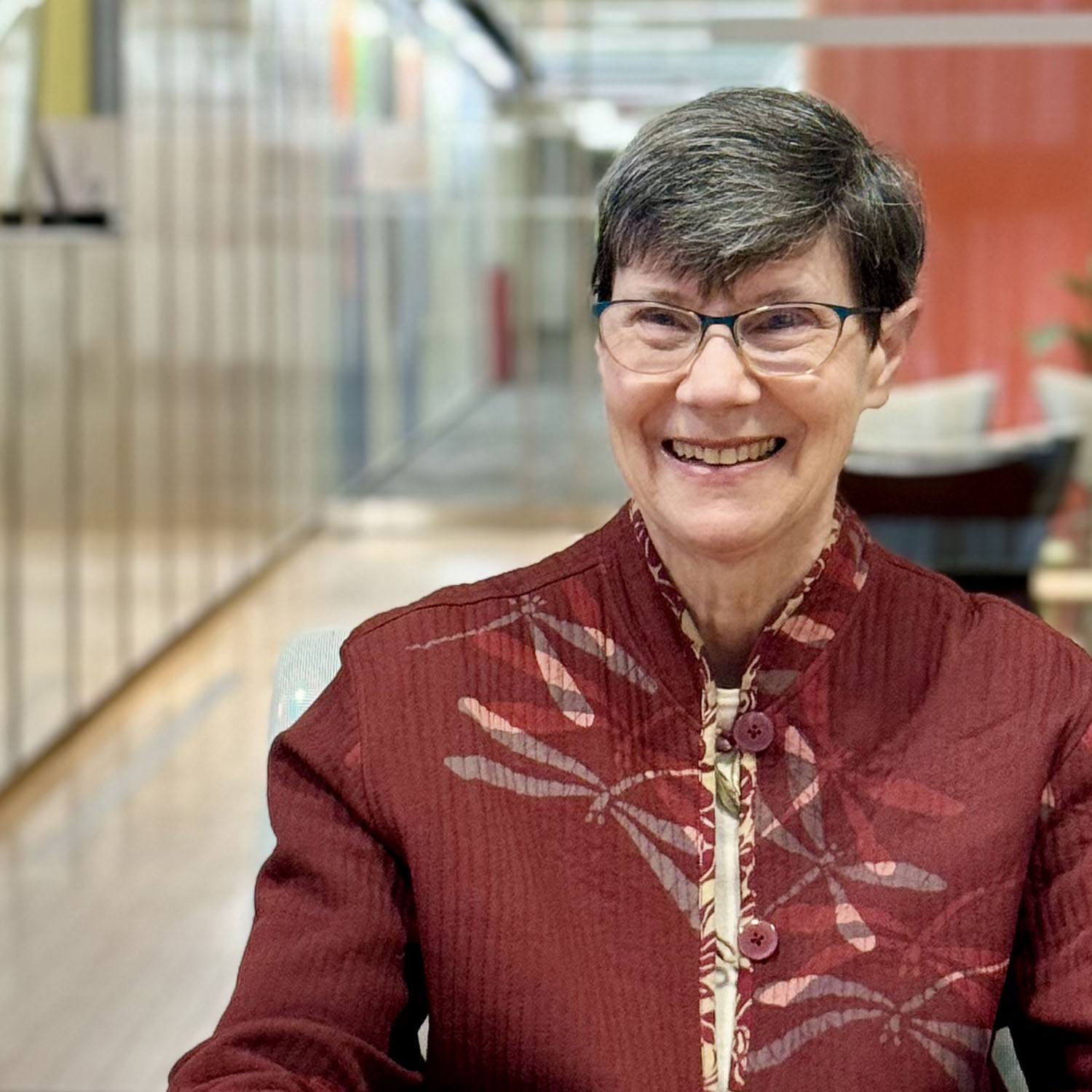Understanding the Real Progress Driven by Artificial Intelligence
Director’s Page
Helene M. Langevin, M.D.
August 19, 2024
Our most recent Integrative Medicine Research Lecture Series (IMLS) presentation highlights the multitude of scientific opportunities that come with leveraging artificial intelligence (AI) and machine learning (ML) to advance our understanding of human health and transform approaches to care. During the lecture, “Harnessing AI To Explore Health Restoration in Diabetes,” Aaron Y. Lee, M.D., M.S.C.I., of the University of Washington provided a compelling vision of how AI/ML can power intriguing exploration of human health along a bidirectional continuum: moving away from or toward health.
Dr. Lee is a principal investigator of the AI-READI study, funded through the National Institutes of Health (NIH) Common Fund’s Bridge to Artificial Intelligence (Bridge2AI) program. During his lecture, he highlighted how AI/ML methods are being used to analyze large clinical datasets to shed new light on precursors and progression of conditions like dementia, macular degeneration, heart disease, and diabetes. He highlighted how his team is working to include participants from all communities and to collect diverse data types, to root out bias that can be introduced or amplified using AI/ML.
And it was exciting to hear Dr. Lee discuss his new focus on “salutogenesis,” a long-neglected area of research. In biomedical research, we focus on pathogenesis—the processes and pathways that lead to disease. In contrast, we know far less about salutogenesis, the processes involved in moving from a less healthy state to a healthier state.
Greater understanding of salutogenic mechanisms is an essential part of advancing whole person health. We therefore must widen our focus beyond examining diseases within specific organs and systems to also understanding the full health-disease continuum, including health restoration, which likely involves complex interactions across multiple systems and scales. To do that, it’s critical to understand that humans don’t simply exist as “healthy” and “unhealthy.” There are countless innate intermediary processes happening in our bodies when we fend off disease, recover from a physical injury, or adapt to various stressors on our health. The opportunity that Dr. Lee and his colleagues recognize is that, by understanding these underlying processes, we may be able to leverage specific interventions to support salutogenic mechanisms and move toward better health.
Dr. Lee’s presentation also reinforced my excitement about the National Center for Complementary and Integrative Health’s investment in establishing a Whole Person Research and Coordination Center (Whole Person RCC). Within this initiative, researchers will build a conceptual map of the healthy human physiome to represent all physiological organ system functions and identify common data elements appropriate for each major physiological function. This conceptual map will be built using established expert knowledge about healthy human physiology. Once built, the conceptual map can be populated using large longitudinal datasets, such as All of Us, that can then be used to generate predictive models of how whole person physiology can shift toward health or away from it in response to interventions such as changes in lifestyle.
The conceptual whole physiome map also will provide exciting potential benefits to the research community in avoiding some of the pitfalls of conducting whole person research using AI/ML. One of the challenges of studies using large multiscale datasets is “drowning” in data that can be uninterpretable without a set of solid reference points based in existing scientific knowledge. And at the moment, our “ground truth” knowledge is fragmented within organs, systems, and scale silos, and lacks integration. Pressure testing knowledge gained through AI/ML against the whole person conceptual map will allow us to avoid these pitfalls and equip the research community to navigate the deluge of information to translate it into real knowledge.
As both Bridge2AI and the Whole Person RCC progress, they will converge to leverage what we know, contextualize and validate what we’re learning, and point to new opportunities for scientific inquiry. The result will be a highly detailed, validated model of human health that dramatically expands and reshapes our current boundaries of understanding health.
If you didn’t have the opportunity to join Dr. Lee’s lecture, you can watch it on demand. This presentation is an exciting view into the scientific exploration underway within the Bridge2AI initiative and how it complements and amplifies the larger body of work to expand our understanding of whole person health.
